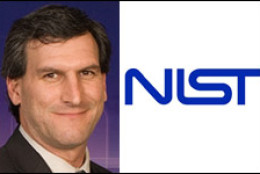Cybersecurity
-
Gordon Gillerman and Matt Scholl of NIST discuss standards, certification and accreditation with host John Gilroy. June 19, 2012(Encore presentation December 25, 2012)
June 19, 2012 -
Kaspersky Labs spotted malware disguised as a fake security app called "Android Security Suite Premium," Computerworld reports. The malware is a threat to everyday smartphone users as well as businesses that allow employees to use personal devices on the network.
June 19, 2012 -
After breaking into the network, the man allegedly tried to sell access to DoE for $50,000.
June 19, 2012 -
The Cybersecurity Technologies Research Lab's goals include building the scientific foundation for cybersecurity research, developing critical relationships and testing solutions in real-world situations.
June 19, 2012 -
Federal agencies running virtualized computer systems might be vulnerable to a new cyber attack. The warning comes from the U.S. Computer Emergency Readiness Team.
June 18, 2012 -
Last week it accidentally posted the home addresses of its newest top-level domain-name applicants, Government Computer News reports.
June 18, 2012 -
Health and Human Services has named entrepreneur Bryan Sivak as its chief technology officer. He replaces Todd Park, who moved on to the White House.
June 15, 2012 -
The Homeland Security Department showed lawmakers and staff how easy it is to create a spear phishing attack against a federal employee using free, open-source tools. The agency also said the Einstein 3 program is under development and will rely on vendors to provide intrusion prevention services. Sen. Joe Lieberman (I-Conn.) said he expects the cyber bill to go to the Senate floor for debate no later than July.
June 14, 2012 -
Gen. Keith Alexander, who runs the National Security Agency, endorsed the idea of using a cloud computing facility to share cybersecurity information with the private sector.
June 14, 2012 -
Heidi Avery is deputy assistant to the President for homeland security, on the National Security Staff.
June 13, 2012 -
The deal will help Northrup broaden its client portfolio amid dwindling defense sales and concerns about sequestration.
June 13, 2012 -
The cover up, as they say, is almost always worse than the crime itself. The rule of thumb, from the Watergate era, is follow the money, although people rarely do that. Following the money can be tricky. Also complicated. Especially in the computer age with multi- national players, Senior Correspondent Mike Causey says.
June 13, 2012 -
The new bill from Senators Sheldon Whitehouse (D-R.I.) and Jon Kyl (R-Ariz.) change the Department of Homeland Security's control over cybersecurity standards in the private sector.
June 12, 2012 -
Debora Plunkett, the director of the National Security Agency's Information Assurance Directorate, said there is good news and bad news when it comes to protecting the U.S. from cyber threats on a daily basis. In an exclusive interview for Federal News Radio's Agency of the Month program, Plunkett said getting the nation's networks to a higher level of security is multifold.
June 11, 2012 -
The Defense Department is taking submissions for its 12th annual Cyber Crime Conference. The conference is sponsored by DoD's Defense Cyber Crime Center (DC3). Planners expect more than 200 speakers and 20 different track sessions. Participants from agencies, universities and industry are invited to share ways to prevent cyber crime. Submissions for research abstracts are due by July 6th.
June 11, 2012




